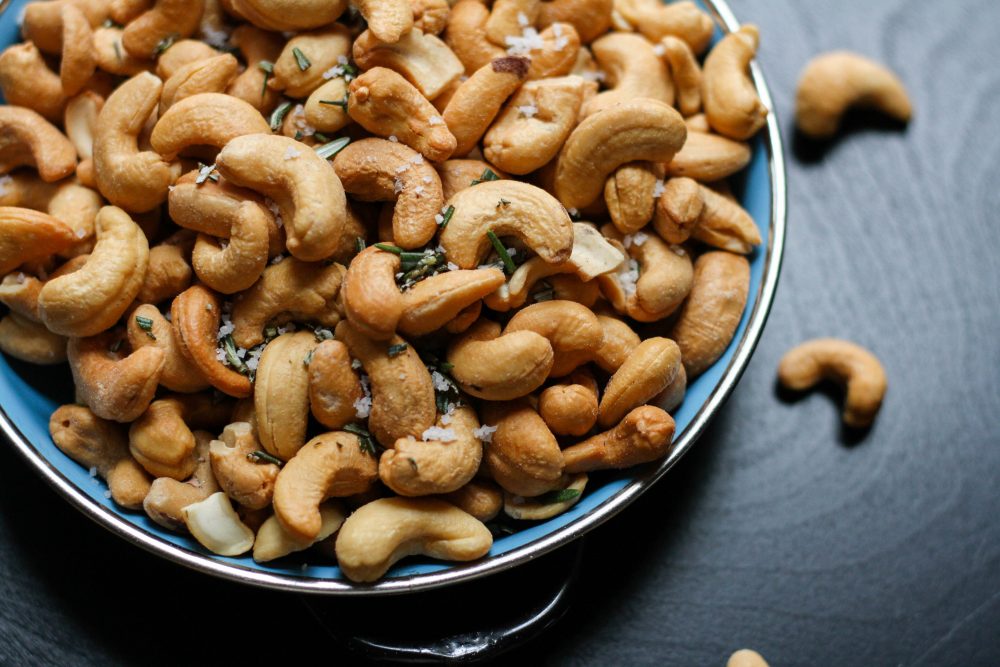Cashew Nutrition Facts

Cashews are a good source of plant-based protein. They’re also pretty high in fat, providing a mix of saturated and unsaturated fats. And like other plant-based sources of fat, cashews reduce your risk of premature death when you substitute them for animal-based fats.
Cashews are about the micronutrients as much as the macros. They’re a good source of vitamin K and B vitamins, as well as important minerals like iron, magnesium, phosphorus, zinc, copper, and manganese. They’re also a decent source of the elusive mineral selenium. And in a victory for those of us who prefer roasted nuts (and drupes!) to raw ones, it appears that roasting cashews actually increases their antioxidant power.
Cashews also contain so-called “antinutrients” like lectins, phytates, and oxalates, which, despite what some wellness influencers claim, are not a problem for most people. If you want to maximize mineral absorption, you can neutralize the effect of these compounds by soaking your cashews for a few hours, or eating them with allium vegetables (such as onions and garlic) or foods containing vitamin C.
If you’re looking to lose weight, keep in mind that the high-fat content of cashews, coupled with their very low water content, means they are high in calories. In fact, an ounce of cashews delivers a whopping 155 calories, which comes out to almost 2,500 calories per pound. And given that they’re often roasted and salted to make them even more delicious, they’re pretty darn easy to overeat.
( Excerpt from The Food Revolution Network)
